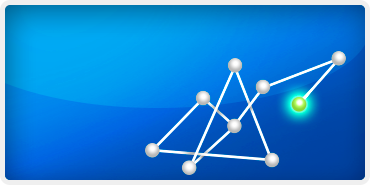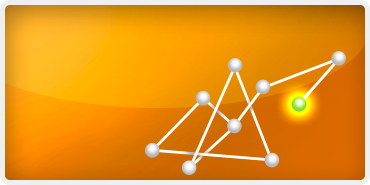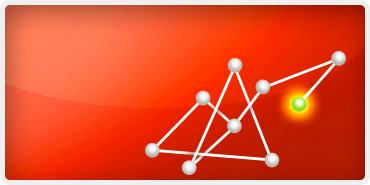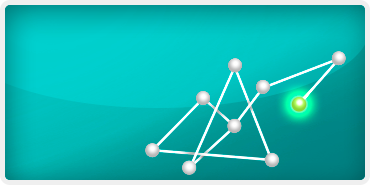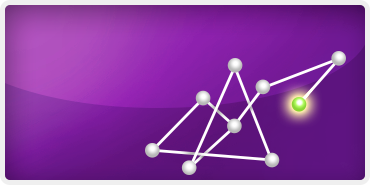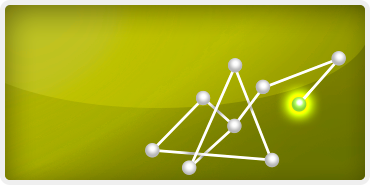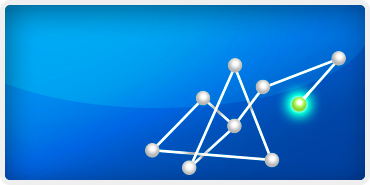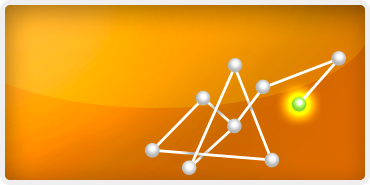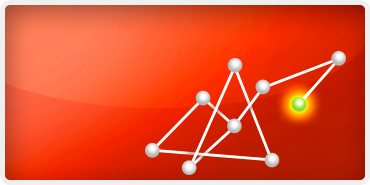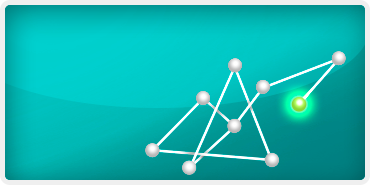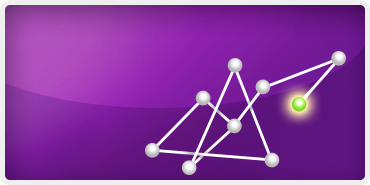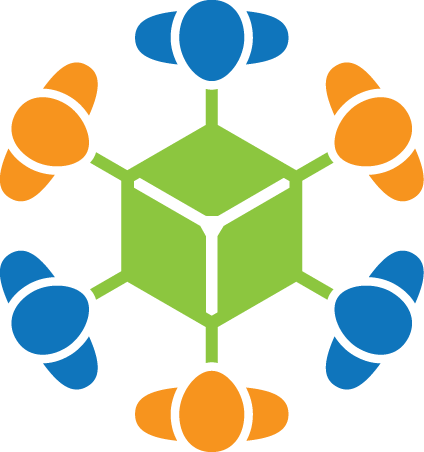Plug and Chug.
Update: In response to Covid-19 we have been working with jsPsych and the Experiment Factory to add their library of over 100 studies to Volunteer Science. You can find our working list of templates here. If you see a study in this list, email us at support@volunteerscience.com and we will make it available to you.
Template types
Each tab describes what the template has to offer and how it can help you build your own game.
Stroop Task
Players distinguish the color of a word from the word itself as quickly as possible. This study is often used to test attention and memory and is frequently used as a neutral task for other studies. In this template, players must discern the word rather than the color of the word. You can easily customize the timing of the task, number of example rounds and actual rounds, and the focus icon through experiment variables and change the stimuli by editing the rounds.js file.
Flanker Task
The flanker tasks asks participants to pick out the incongruent item in a sequence as quickly as possible. This study is often used to test attention and memory and is frequently used as a neutral task for other studies. In this template, players must discern the third letter in the sequence: fffff, ffhff, hhfhh, and hhhhh. You can easily customize the timing of the task, number of example rounds and actual rounds, and the focus icon through experiment variables and change the stimuli by editing the rounds.js file.
Lexical Decision Task
The lexical decision task asks participants to identify whether a sequence of letters makes up a word or not (i.e. stree versus steer). This study is often used to test attention and memory and is frequently used to measure implicit primes, to generate primes or as neutral task for other studies. In this template, players must discern whether a string is a word. You can easily customize the timing of the task, number of example rounds and actual rounds, and the focus icon through experiment variables and change the words and nonwords presented by editing the rounds.js file.
Implicit Association Task
The implicit association task is a classic experiment in implicit bias and cognition, asking participants to classify stimuli into one of two categories as quickly as possible. The idea is that people will sort items that are more strongly associated with a category more quickly than items they associate less with a category. For example, based on stereotypes, we may have stronger associations between some types of people and attributes like intelligent, funny, or tall. In this template, you can customize the words and categories people must select, the timing of the task, number of example rounds and actual rounds, and the order of round stimuli.
Prisoners' Dilemma
The prisoner’s dilemma is a classic study in cooperation in which two players simulate being partners in crime caught by the police. They are given the choice of whether to testify against the other in return for leniency or stay silent. The study is used to test human’s propensity to trust one another and cooperate when the individual payoff supports defection but the social optimum is to cooperate. In this template, you can customize the payoff structure, the number of rounds being played, the presence of a scoreboard, whether prior decisions are visible, and the behavior of bots.
Common Pool Resource
The common pool resource experiment is a classic study about social coordination in which a group of players must decide whether to use a common resource, like public grazing land, or their own private resource. The payout for using the private resource is fixed and usually small. The payout for using the common resource is potentially large, but only one person uses it. If all players use it, the payout is small or negative. This experiment is often used to study how people coordinate the use of common resources. In this template, you can customize the payoff structure, the number of rounds being played, the presence of a scoreboard, whether prior decisions are visible, and the behavior of bots
Ultimatum
The ultimatum experiment is a classic study about fairness. This template enables researchers to implement a set of canonical bargaining experiments including variants of the ultimatum game, the dictator game, pirate game, and trust game. Each of these pits two players as alternate sides of a negotiation for splitting a pot of money. In the ultimatum game, one player makes an offer and the other can only accept or reject the offer. In the ultimatum with tipping game, the player making the offer can tip the recipient for accepting the offer. These studies provide insight into the people’s sense of personal benefit and fairness. In this template, you can customize the type of game, the number of rounds, whether subjects switch positions between rounds, the number of points distributed, and the behavior of bots.
Public Goods
The public good template is a classic study about free riding in which a group of players must decide whether to put money into a collective pot and split the rewards or keep their money for themselves and still split the pot. As in the prisoner’s dilemma, the individually rational choice is to keep your money and split the pot, called free riding while the socially optimal outcome is for everyone to put their money in the pot. In this template, you can change the amount paid from the pot, the information shown to users about others’ choices, the budget for each round, the number of rounds, and the behavior of bots.
Wildcat Wells
Wildcat Wells is a new classic in the study of exploitation/exploration trade-offs in problem solving. In this template, participants much look for the best location to drill for oil. Each round, they must choose to drill a new well (“exploration”) or drill in areas that have already been explored (“exploitation”). In this template, you can control who sees whom; whether players see just well locations, amount of oil found, or both; how distinguishable good wells are from bad wells, the number of rounds, and the behavior of bots.
Travelling Salesperson
The travelling salesperson is a classic problem used to study exploitation/exploration tradeoffs in which participants must connect the “cities” to find the shortest path that includes all the “cities.” In each round, players submit their guess, see their distance, and then are given the opportunity to find a shorter path in the next round. In the multiplayer mode, participants are able to see one another’s answers and path length and can copy (“exploit”) better results. In this template, you can control who sees whom, whether players see others’ solutions, lengths, or both; the number of rounds, and the behavior of bots.
Qualtrics Survey
The Qualtrics survey demo demonstrates how to use an iframe to embed a Qualtrics survey in your study and pass data between Qualtrics and Volunteer Science. Qualtrics is a leading provider of survey-creating software. You can send data collected in Volunteer Science to Qualtrics through URL parameters and then send data from Qualtrics to Volunteer Science through javascript messages. Be sure to download both the “Qualtrics Survey demo code in Volunteer Science and our example survey itself to see how data is transferred.
SurveyMonkey Survey
Survey Monkey is one of the most commonly used survey programs for individual researchers. In this template, we show you how to use the javascript snippet Mailchimp gives you to embed your survey in a Volunteer Science experiment.
Native Survey (with jsPsych)
You can build your own surveys in Volunteer Science using the jsPsych Library. In this demo, we show you how to write a four question survey.
Facebook Data Donation Demo
The Facebook data donation demo shows you how to request, collect, and save your subject’s Facebook data. We offer access to every endpoint available in the Facebook Apps api, including particpant’s posts, photos, birthday, demographic data, and friends list. This demo shows you the functions you use to request data access and then show the result to participants and/or save it as part of your study.
Chat Demo
Volunteer Science enables you to create a chat room for any number of subjects in just sixteen lines of code. The demo shows you how to create the chat as well as format the chat window and text to ensure it fits your study’s needs. The chat demo also shows you how to save time-stamped chat data for future analysis.
Consumables Demo
If you have a lot of data to code, for example images, texts, audio, video; you can use our consumables framework to pull them into an experiment and have people code the data for you. The consumables framework balances data collection so you don't have too many people coding the same items and so users don't code the same thing twice. In this demo, we have a list of words to be classified as whether or not they are types of horses.

